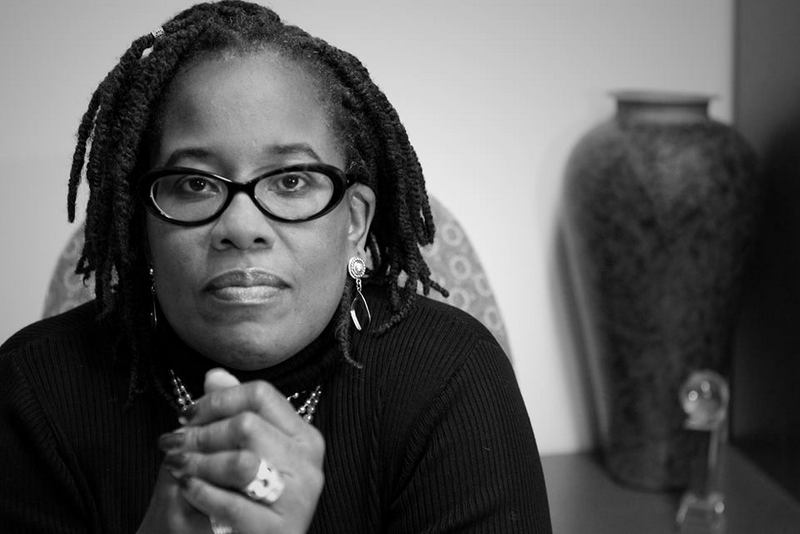[ad_1]
By Karsonya Whitehead, Special to the AFRO
I was raised by baby boomers: the last Jim Crow generation whose lives were shaped by the early days of the Civil Rights Movement, the words of Martin Luther King Jr., and the Vietnam War. They had been raised to believe that White people were not only better and smarter, but that they were, in fact, closer to God. My parents said that even though they were never actually told that they were inferior, they were taught that White people were superior. As a child, no one ever explained to them why they had to get on the back of the bus or why they could never look White people in the eye. They never really understood the reasoning behind the separate water fountains and bathrooms or why they could never eat in the lovely restaurant downtown. They never wondered or questioned why they had to walk past brand new schools, with playgrounds and manicured lawns, to get to a small dilapidated one-room shack where nothing was brand new, and everything was always broken. They grew up learning how to give way to whiteness and how to swallow their anger. My father used to watch his father, and he noticed that whenever his father dealt with White men, he would lower his eyes while simultaneously throwing back his shoulders. It was those moments, where he watched his father practice subtle acts of resistance, that shaped who he was and helped him to find and claim his voice.

My parents were raised by the Silent Generation, traditionalists who were shaped by the Great Depression, World War II, and the frequent lynching of Black bodies by White hands. My grandparents believed that a world without Jim Crow was possible so that I would be able to look White people square in the eye while simultaneously throwing back my shoulders. My parents were taught that each generation is entangled in an inescapable network of mutuality, and it is their job to be a bridge for the next generation to walk over. They understood that their failures and their successes would mark the path that I would eventually tread. The moments where they fought and the moments where they relinquished determined how I navigated and negotiated this world. When my grandfather threw back his shoulders in the face of whiteness, my father mimicked this gesture and then taught it to me. When my grandfather sang Negro spirituals, he taught my mother the words, and then she taught me the meaning. When my grandfather taught my father to pray, to fold his hands and wait for change to come, my father listened and then unfolded them, used them to dismantle a racist system, and forced change to happen.
When I was growing up, I used to spend every summer in South Carolina with my father’s parents on their farm. I would run through their woods and sit down by the lake. I would take my journal and lay on a blanket and write about who I wanted to be when I grew up. My grandfather would always make his way down to the water after he finished his chores. I would know when he was coming because he used to sing. He had a deep baritone voice that would carry in the woods, and his singing would lift me up, would make me feel free, and would cause me to start singing as well. “The problem with White people,” he would say as he sat down on the blanket and pulled out his chewing tobacco, “…is that they want to take everything from you. It is not enough for us to hold on to even the broken pieces of ourselves, they want that from us, as well.” He would rest for a moment, studying the water, chewing, and spitting. “I taught your Daddy how to hold on to his broken pieces, you need to learn how to do the same.” My father said that when he used to march against Jim Crow, he would tell himself to hold on to his broken pieces, and when his family was being terrorized by the KKK, he would remind himself to hold on to his broken pieces. When he sent me off to college and graduate school, to Kenya, and then down the aisle to get married, he told me over and over again to hold on to my broken pieces. My parents are baby boomers, the last Jim Crow generation. They taught me how to kick ass, how to sing, how to survive whiteness, and how to hold on to my broken pieces.
Karsonya Wise Whitehead ([email protected]; Twitter: @kayewhitehead) is the #Blackmommyactivist and an associate professor of communication and African and African American studies at Loyola University Maryland. Recently selected for the Essence Woke 100 List, she is the award-winning host of “Today With Dr. Kaye” on WEAA 88.9 FM. She lives in Baltimore City with her husband and their two sons.
The opinions on this page are those of the writers and not necessarily those of the AFRO. Send letters to The Afro-American • 1531 S. Edgewood St. Baltimore, MD 21227 or fax to 1-877-570-9297 or e-mail to [email protected]
[ad_2]
Source link

